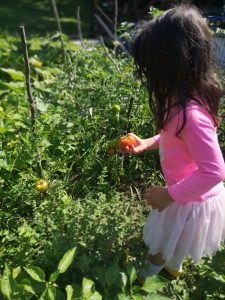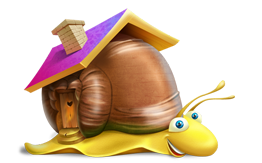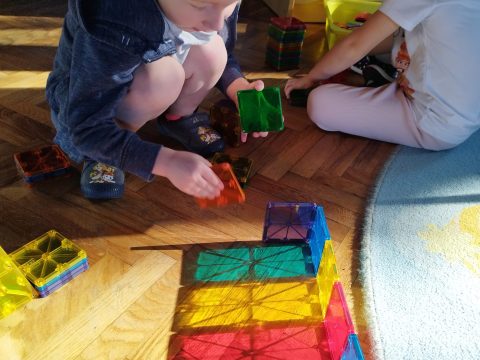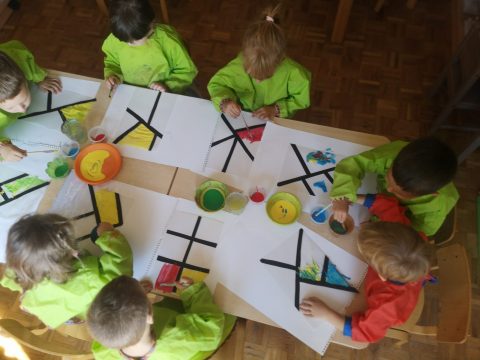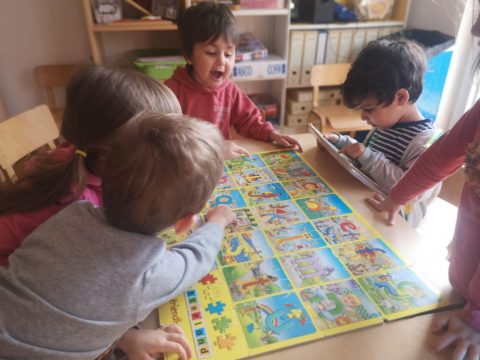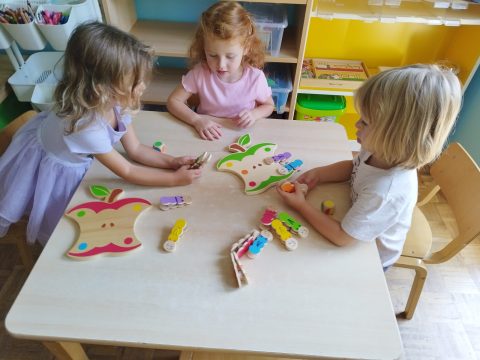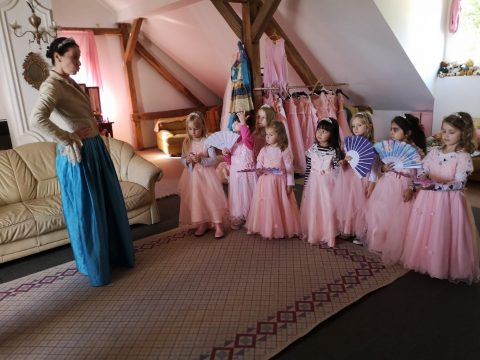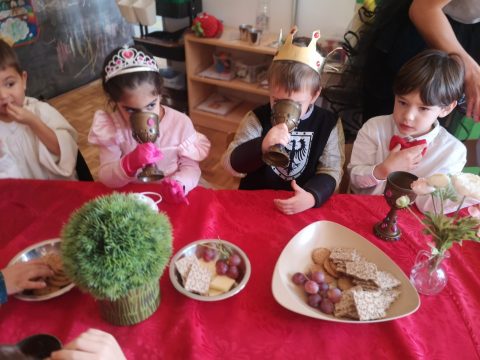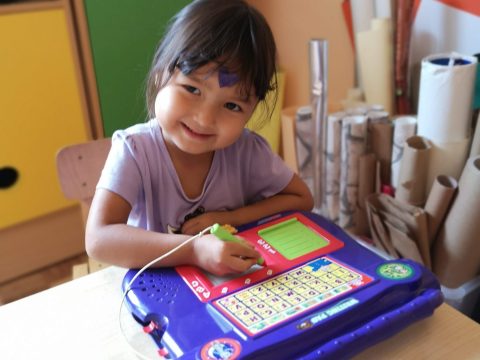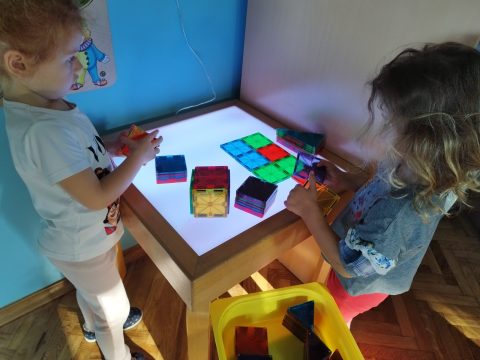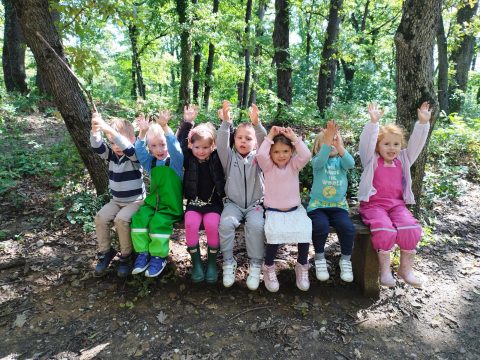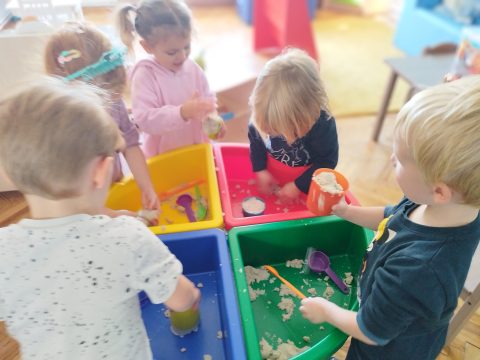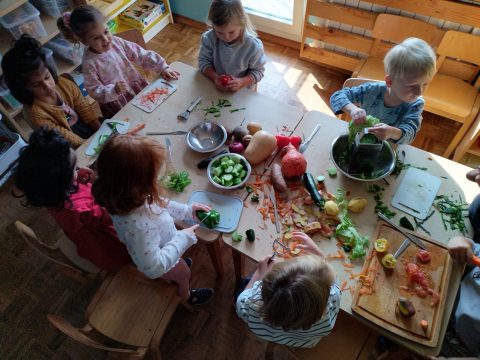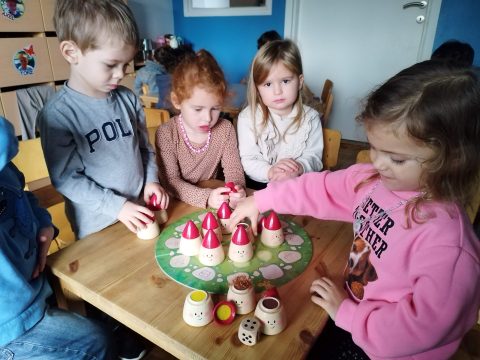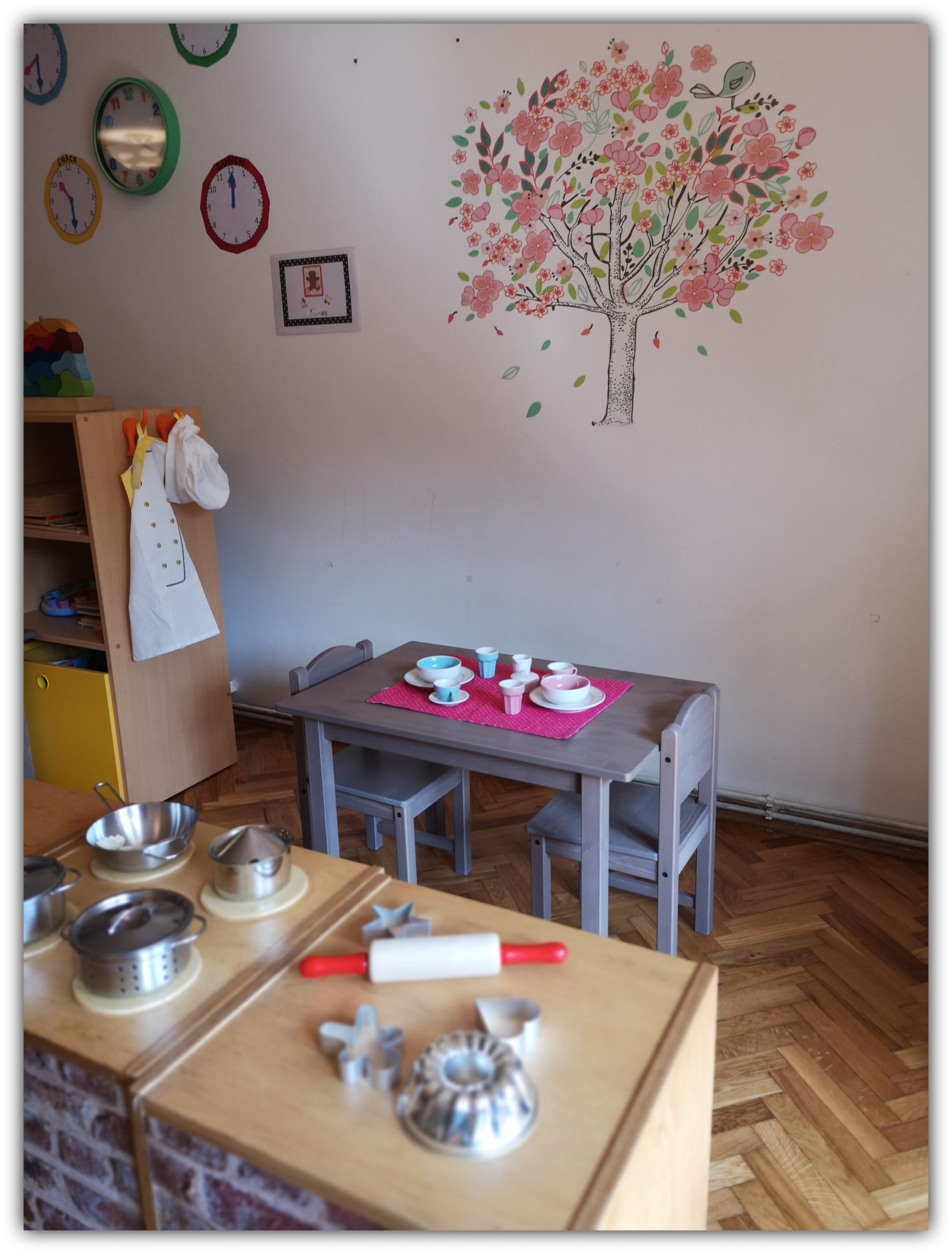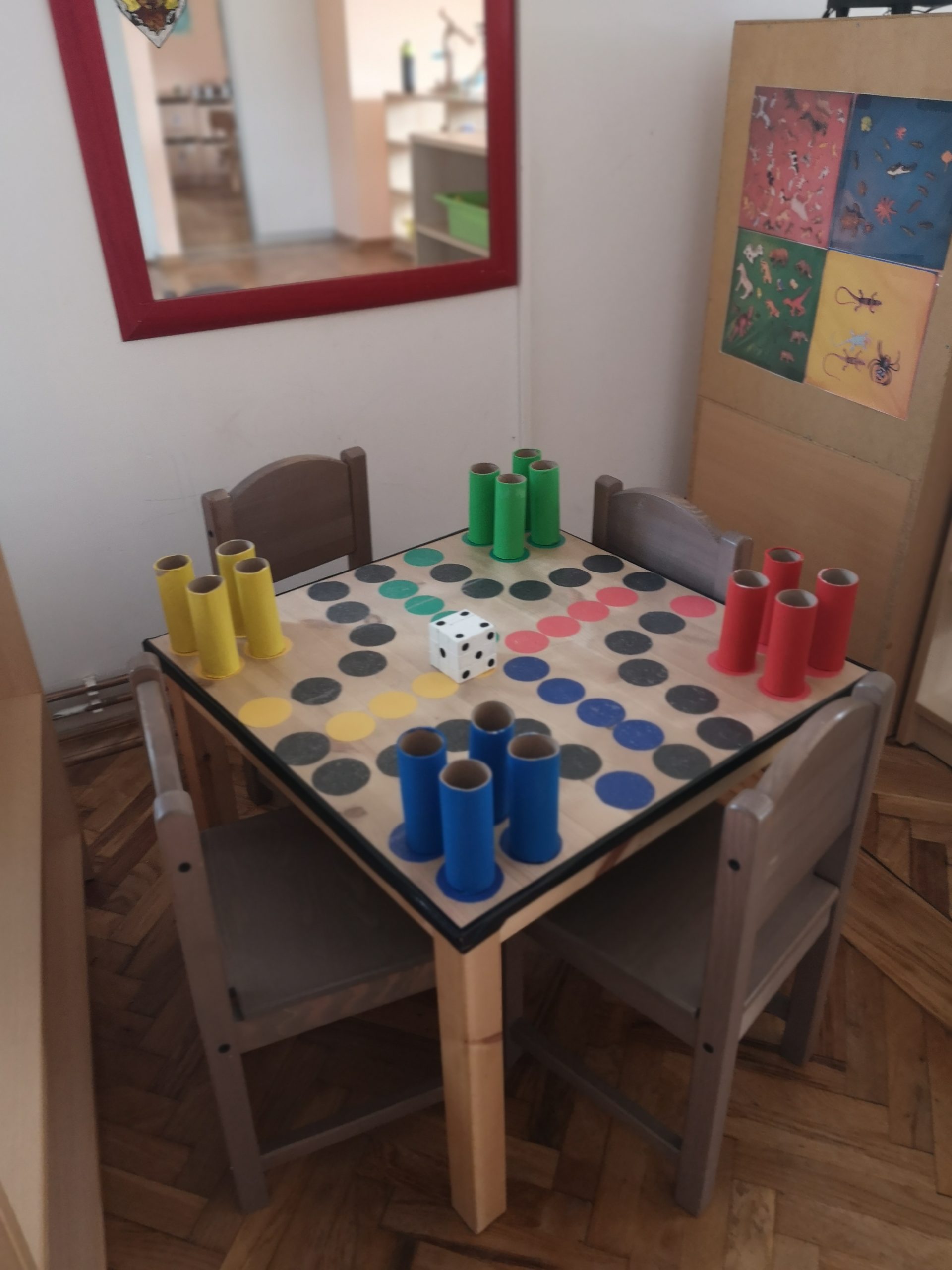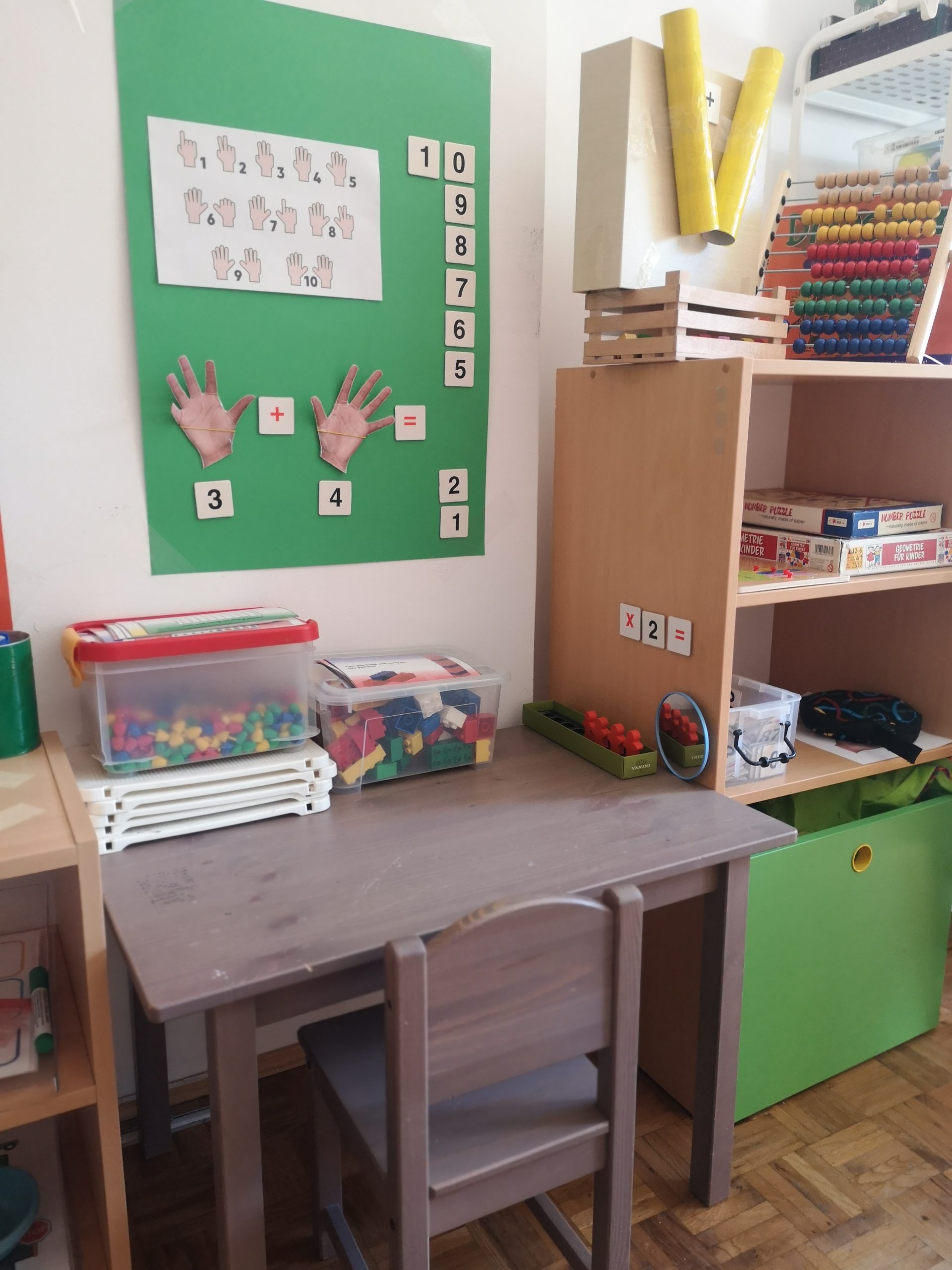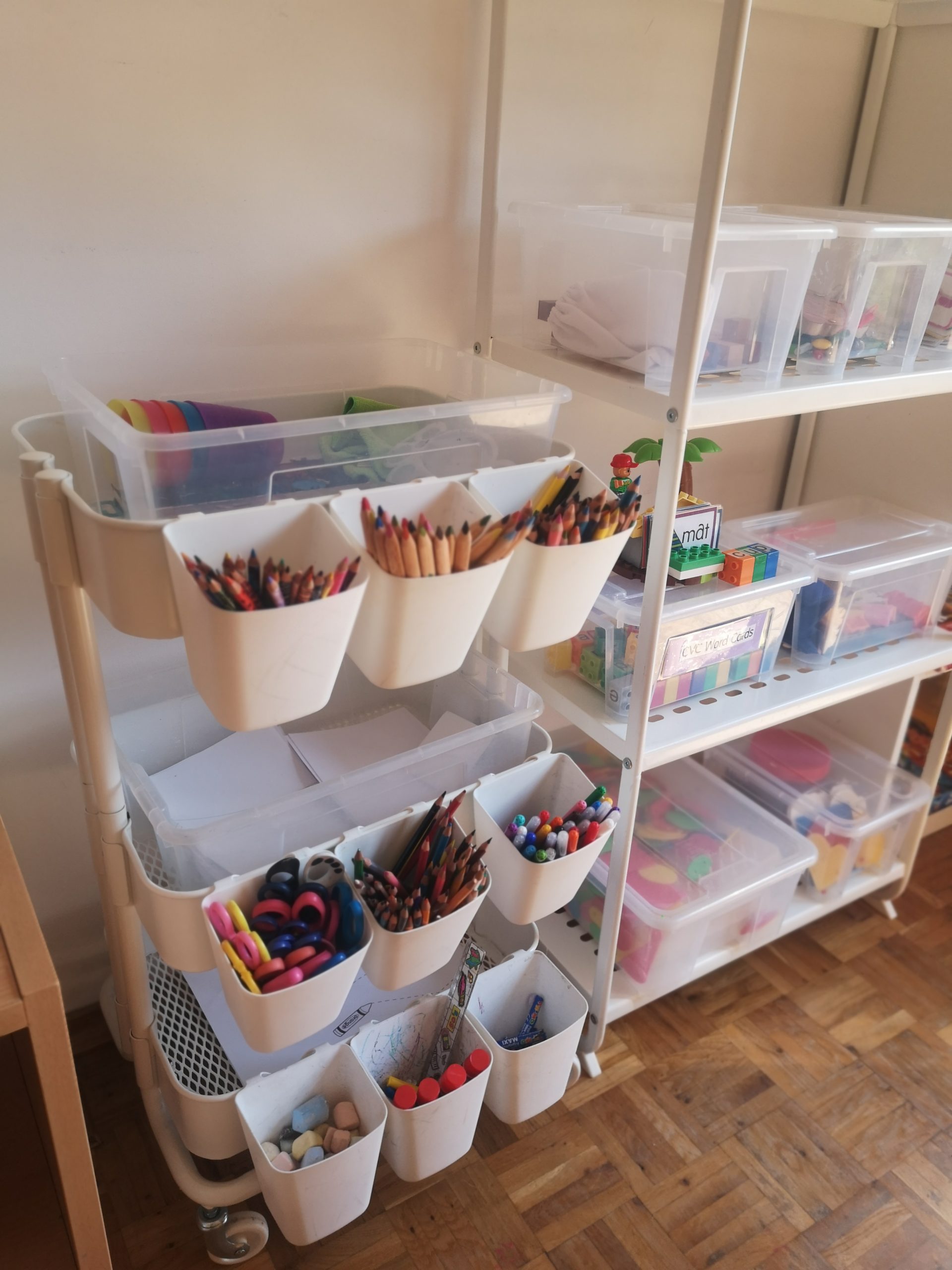The Butterflies – kindergarten for children from 3 to 7 years
“All I need to know, I learned in kindergarten.” R.Fulghum
That’s why we ensured every child receives that experience! Our proven recipe consists of play-based learning, a safe and creative environment, lots of love and attention, hands-on activities, and tons of fun!
All curriculum areas are presented in an integrated, age-appropriate manner. The overall development is stimulated through play-based activities guided by children’s individual preferences. At a very young age, children develop the proper behavior patterns. Teachers act as role models and their playmates who guide them. Every child requires an individual approach. Our aim is to assist them in becoming fulfilled, satisfied, and happy individuals.
Language and literacy development are essential domains of early childhood development. They involve developing the skills used to communicate with others through languages and the ability to read and write. Examples of activities we do with children:
- Reading/listening to stories, poems, and rhymes
- Singing songs, chants, and nursery rhymes
- Playing with puppets and making a puppet show
- Conversation in a circle time
- Matching letters and sounds
- Word games (“I spy,” Bingo, Scattegories, hunts, etc.)
- Writing letters with different media: crayons, shaving cream, sand/flour, watercolors, sticks, etc.
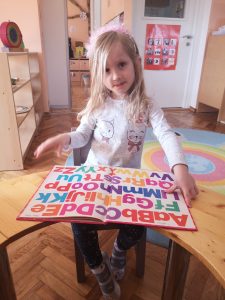
FINE MOTOR SKILLS
Fine motor skill activities enhance the development of fingers, hands, arms, and eye-hand coordination. There are a variety of activities children can do, such as exploring sensory play materials, threading beads, cutting, sticking, paper tearing, scrunching, drawing or painting. These exercises form the basis for more complex activities like writing, cutting, tying shoelaces, and so on.
GROSS MOTOR SKILLS
Whole-body movements are needed to perform gross motor skills which involve large muscles for daily tasks such as walking, running, jumping, etc. Children practice those activities on a daily base.
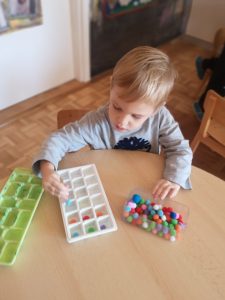
Early childhood is a period of tremendous cognitive growth. Children of this age are undergoing a large amount of change rapidly and are learning to see the world in many new and exciting ways. Examples of cognitive activities:
- Memory matching
- Solving puzzles
- Sorting and classifying (toys, beads, colors, and other objects)
- Sequencing
- Activities with shapes, numbers, quantity, sizes, etc.
- Science projects
- Exploring objects and natural phenomena
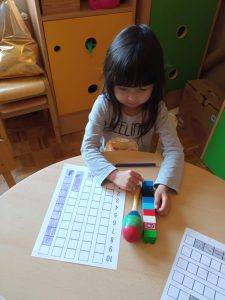
ARTS & CRAFTS
Preschoolers love to express themselves and their ideas using different materials and techniques. They enjoy experimenting with texture, space, and colors in art pieces.
MUSIC
Using music with preschoolers engages their brain helps cultivate communication skills; it allows children to express themselves, music and dance contribute to creativity and imagination.
CREATIVE PLAY
Play is the most influential children’s activity! It is a child’s way of engaging and making sense of the world. To absorb those experiences and make sense of the world, they need to be involved in creative play.
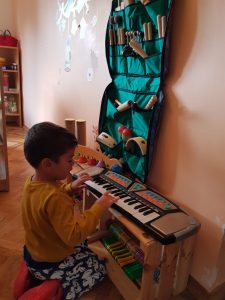
A tremendous amount of social and emotional development takes place during early childhood. As children experience temper tantrums, mood swings, and an expanding social world, they must learn more about their emotions and other people.
Adults are here to help them, but the most important is their own experience, which they get in kindergarten.
We use activities like:
• Teaching problem-solving strategies
• Roleplays
• Listening games
• Board games and games with rules
• Talking about emotions, family, and friends
• Reading stories, watching videos, and playing with puppets
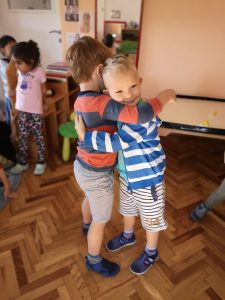
Practical Life activities are everyday life activities, and they are involved in all aspects of life. Through useful life, the child learns about his culture and what it is to be human. Examples of activities that we do with children:
• Self-care: nose-blowing, washing hands, brushing teeth, etc.
• Dressing and undressing, tying shoes
• Table setting and self-service during meals
• Cooking and baking
• Recycling and composting
• Tyding up the room
• Taking care of plants
• Growing a garden etc.
